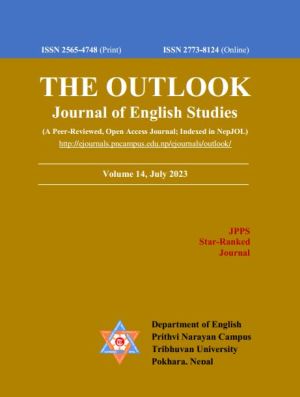Textbooks and Nationalist Values: Revitalizing Civic Learning in Nepali Schools
DOI:
https://doi.org/10.3126/ojes.v14i1.56651Keywords:
Nationalist values, national character, school textbooks, citizenryAbstract
This study investigates the learning content of government school textbooks in Nepal, analyzing their political implications and their role in cultivating a national character. By considering the textbooks as cultural products, the research examines the learning content to explore how they contribute to the formation of national character. The content of the textbooks was purposefully selected and subjected to analysis using Critical Discourse Analysis (CDA). The findings of the study reveal that the prescribed textbooks were crafted to promote the state's vision of national character by either emphasizing or downplaying specific values, ideologies, and belief systems, rather than fostering critical thinking and cognitive skills among learners. Three main trajectories were identified: the notion of being Gorkhali (synonymous with “Nepali”), reverence for the past, and the concept of national indivisibility. It is argued that the development of the learning content is not merely a pedagogical endeavor but also a political one, reflecting the state's adherence to dominant narratives. The study focused on analyzing the themes of civic learning and national character, without considering the perspectives of teachers and students regarding the content.
Downloads
Downloads
Published
How to Cite
Issue
Section
License

This work is licensed under a Creative Commons Attribution-NonCommercial 4.0 International License.
This license enables reusers to distribute, remix, adapt, and build upon the material in any medium or format for noncommercial purposes only, and only so long as attribution is given to the creator.

